Begendings
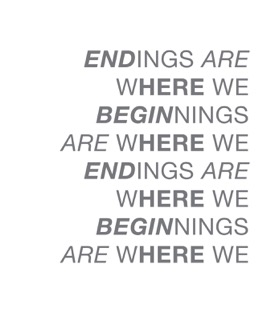
"I believe I'll next focus my attention upon my beliefs …"
Had I intended to arrive somewhere by now, I should properly feel disappointed, but I intended no forward progress. I set out to slide sideways for a season and I seem to have accomplished that modest objective. I did not start with the ending in mind, but with an enquiring mind. I wondered what might happen if rather than plot my moves, I expected that my moves might coalesce into some semblance of a plot. I expected to sometimes veer off topic, temporarily stumped over my next move. I hoped that I might stumble into some interesting territory, that I might gain insight rather than more complete understanding. I might have ended up more clueless than I began, but what could I have to hide? I believed that I'd lost some appreciation for the fundamentally circular nature of life. Altogether too forward-looking and therefore less tolerant of the potentially enlivening lateral slide. I'd likewise split sideways into notional sides, too, left and right, right and wrong, the ups and downs of an orthogonal plane. Maybe direction need not matter.
I intended to investigate space, to stumble upon something or even nothing at all.
HollyDave's
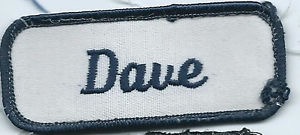
" … each celebrating a holiday called Good Old What's It's Name."
Think of a holiday, any holiday, and a set of standard images might come to mind: candles for Chanukah, witches and black cats wearing witch hats for Halloween, a turkey wearing a Pilgrim hat for Thanksgiving, Santa sipping a Coke® next to a decorated tree for Christmas. We all know the memes. Interestingly, though, none of us ever experience any holiday as portrayed. We identify with the iconography even though our family does things a little differently. Maybe we're a ham instead of a turkey family, or we celebrate Christmas without Santa's haunting presence, not even exchanging presents, certainly not boughten stuff. Each family detours from the advertised standard such that each collective holiday becomes a set of extremely personal experiences. Some open presents on Christmas Eve, others on Christmas Morning, and still others on Epiphany. I dare say that the majority of Yuletide celebrants would never self-identify as Christian, which seems fine since Christians kind of swiped a pre-existing pagan celebration for their own, anyway. Each unique form of celebration might well elicit a single common spirit, though, and maybe that's what we each celebrate, whatever the form.
Me? I observe HollyDave's, a uniquely personal end of the year holiday. It's sort of Christmasy and kind of Chanukahey, a little bit pagan yet hosting ample silent, solemn stillness.
TakingStock/MakingStock
" … at least try out trying to do without before freaking out about the absence."
An impending end of a season, like an approaching yearend, brings out the auditor in me. I feel moved to engage in inventorying. What had I acquired? What expended? What remains after the passage of this latest period of existence? How might I value that flow of goods and services, and the not-so-goods and trespasses? Much of what came to pass simply passed back into the ether from whence it appeared, no longer here and unverifiable anywhere now. There were fusses and feathers, though little remains of their presence. What does remain hardly represents the hopefulness or dread by which experiences and stuff originally appeared. A few scant shards remain like the frozen vegetable peelings clogging my freezer's shelves, souvenirs from a hundred suppers otherwise forgotten now. I purge that inventory, roasting it off into an enormous batch of stock, the water of life, leftovers reduced back into essence.
I learned this year to roast my stock.
Male-ing

" … an annual renewal of my relationship with my father, who taught me much worth fondly remembering."
I love visiting my US Post Office. Strictly speaking, it's really our post office, but I feel a deeply personal attachment to the place. My father was a postal clerk for over thirty-five years, and my mom used to bundle us kids up to go fetch him after his shift. We'd enter the back after crossing the loading dock, an entrance reserved for postal employees, or so the sign said, and while I knew we weren't strictly authorized to enter, we were family, so nobody called us out. Quite the opposite, everyone called us in with cat calls (my mom was somewhat of a "babe"). In those days, postal clerks smoked while sorting mail, so the place smelled of oiled wood floor, paper, and sweet cigarette smoke, with maybe a hint of machine oil wafting in the background. The sorting floor was a warren of sorting racks and stacks of boxes. Sometimes, a few crates of baby chicks peeped plaintively in the corner, attracting us kids to poke our fingers in through the air holes because that's what kids are supposed to do. Otherwise, who could call them cute?
My dad always claimed that the USPS was far superior to any other delivery service. "Only USPS employees take an oath," he said, and he took his oath seriously.
Schleep

" … while The Muse snoozed placidly beside me."
Sleep has never been much of a friend for me. A tough state to enter and a tougher one to remain engaged in, I find it more of a schlep than a sweet embrace: a Schleep, if I dare coin a term. I dutifully set my alarm before retiring, but almost always wake a half hour before it gets around to reminding me to get up again. I maintain a routine my doctor frowns over, insisting that my brain could not possibly adequately reinvigorate in the scant time I allocate for that purpose. I don't know anything about adequacies. I simply take what I seem to tolerate without over-worrying about how deficient my habit might leave me. I subscribe to a notion that everyone carries a unique rhythm into this life. Those fortunate enough to find that rhythm and manage to somehow match it seem especially fortunate. Those who scour the self-help shelves looking for outside advice so as to conform to somebody's sense of normalcy might never properly settle in.
When some event disrupts my curious rhythm, I become dysfunctional. Illness or exhaustion might encourage me to wrestle with my dozy adversary more than might prove beneficial to me. More sleep generally leaves me feeling more depleted; less, more enlivened.
BidingTimelessness
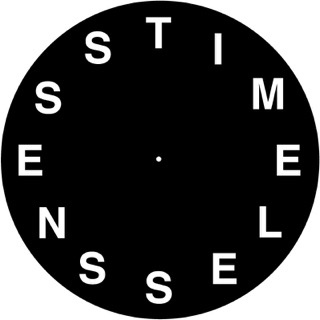
"I'll hardly notice either time or mind."
Healing happens within a timeless state. It occurs at scales beyond or before sensory experience, absolutely invisibly. Nor can anyone hear healing happen, or smell it, or taste it, or watch it happening. One can notice that it happened but never witness it in action. Time seems to work like this, too, that second hand measuring off what happened rather than anything happening. Watching it seems the one certain way to distract from actually experiencing it, as if anyone could experience time at all. Time accumulates into infinitesimals, my many years of life now distilled into flashes and glimpses of indeterminate duration, meaningless both in dimension and duration now. Timelessness might be the same sensation as meaninglessness, the same as each one of the lessnesses, for their very label assigns them to negative space, territory with no finite reciprocal opposite. The lessnesses come as close as we ever come to experiencing nothing at all.
The doctor passed me a passel of don't as I left the surgical center. My optometrist handed me a few more the next morning. Though I feel every bit myself, I'm enjoined to monitor myself as if I was not yet quite fully myself. They probably put the wrong guy in charge.
PointsOfLight

"The key to living the good life lies in being easily impressed."
Living up here near eight thousand feet brings one clear benefit. The night sky rises much higher above at altitude. The mist and dust largely dispersed, nights remain clear enough to see many more PointsOfLight. Even satellites visit us up here, easily visible floating across from horizon to horizon a hundred and more miles above us. During the day, several jet planes remain visible at all times, most heading due West towards California, but a few always heading to seemingly every compass point. Heavies heading toward Hawaii. Prop jobs bound for Aspen. Who knows where they're going? Winds up there tend to remain fierce even when no weather moves through. We live below severe turbulence even when our trees aren't whipping in the wind.
My optometrist Dr. Joe says the procedure to reposition the displaced lens implanted in my first cataract surgery appears to have been successful, though another week's wait will better confirm.
smallDay
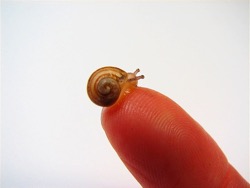
"Sights hardly recognized. Vision still impaired."
The day after TheBIGDay dawns tiny. Maybe the shadow of the recent BIG event still blocks most of the dawning sun. Maybe my eyes have been blinded to anything scaled larger than a finger hold. I might not care about big things anymore, not right now. I'm back into the world, my recently repaired right eye staring as though through a wad of wool, my forehead sticky with remnants of the gooey tape the nurse used to hold that creepy eye protector in place. I moved like a lame zombie before sleeping like a soggy dirt clod, waking around 2AM to wonder if I could see any better than I ever could before. In the darkness, with that eye protector still in place, I listed heavily to starboard as I stumbled into my bathroom to survey the damage in the mirror. I removed the plastic barrier but could tell without peeking that my vision remained impaired.
No news, not yet. A few days might clear the cloudy covering to reveal a world improved. I read the morning news with my one remaining working eye, sighing with pend-up impatience. More time waiting for some sign of improvement.
TheBIGDay
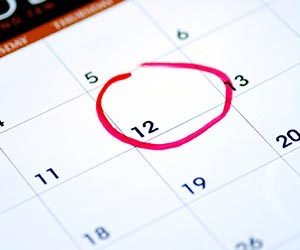
" … mechanics trade not in forgiveness and grace but in grimaces and unintended mistakes."
Today's THE day. Anticipation's finally over. The over-long wait, the thrumming great uncertainty, the fussing and worry fall away today. The planning's moot now, the preparation phase completed. The coordination of all the picky pieces won't ever matter again. I won't even remember the adaptations which had become my new normal, not after today. Tomorrow that dream will have come true or a nightmare will have ensued. Whichever comes to pass, aspiration will have slipped past. A breach in the wall separating past from future opens before me now, promising only future ever after. The past will be gone by the end of this day, this BIGDay.
This seems to be the way we parse our time, into preparation and passage, pre- and post event times, with a narrow, one-way bridging alleyway between.
NotCollegeMaterial

"I consequently never learned the fine arts of football or basketball appreciation, binge drinking, or proper socializing."
Visiting with a high school guidance counsellor when I was about halfway through high school, I received one of those life-defining bits of advice. Reviewing my transcript in progress, the counsellor remarked that I was NotCollegeMaterial. Not that I'd been aching for a college career. That counsellor was correct in that I had never seen myself as college material, but to have even a minor authority confirm my self-assessment seemed a mixed blessing. Before, it had been a choice. After, it felt like an edict, as if no matter what I might accomplish, the 'powers that be' had identified me as uniquely unqualified. This was a bit of a blow. I'd known that I was nobody's mathematician or linguist. In those days, college admission required at least two years of successful foreign language study, and I'd failed to assimilate French and German, so I was cornered. I was then more interested in my guitar, anyway, and figured that I might one day become a star once I was discovered. Not a mainstream celebrity, for sure, but one of those narrowly-appreciated underground types never heard on top forty radio.
I figure that I got more of an education not being college material than I ever could have acquired had I passed that second year of German and stopped calculating on my fingers.
TheMissingIngredient

" … the blessings rain down anyway."
Each holiday, one item becomes prominent by its absence, like an exiled newborn king. Some years it's a spice, others a vegetable or a fruit. Each year this whatever-it-is encapsulates the purpose of the celebration, the search for some seasonal satisfaction. Buddha Hand Citron filled this role for several years, and still threatens each year to reprise its performance, so The Muse and I start seeking sources for this curious fruit by November first. The Muse bakes for the holidays, and holiday baking demands candied citrus peel, the most exotic of these being citron, a fruit that has no pulp, just peel, the exemplar of candying potential. In the early days, we'd start asking after citron in the early fall, expecting to eventually find it displayed pre-processed in small plastic containers in some supermarket's produce section alongside iridescently dyed lime, orange, and lemon peel; little chunks of irradiated glop. But some places don't do citron, have never heard of it, which for us prompted one of those searches seemingly without end, initiating a true seasonal tradition.
We become magi without a guiding star, increasingly frantically seeking some treasure nobody else seems able to relate to.
HouseCleaning
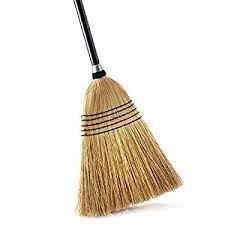
"If anyone tells you married life is bliss, slap 'em with a wet broom."
The Muse and I don't share everything. We don't, for instance, share a HouseCleaning ethic. What's clean for one of us doesn't quite pass muster for the other, so HouseCleaning days turn stressful for both of us. I try to stay out from underfoot, choosing an opposite side of the place to focus my efforts, hoping she'll get occupied somewhere else until I can finish, but the plot rarely unfolds that way. I'll be elbow deep in some special gift of a job, like dusting "her" plant shelves, and she'll show up to find the work somehow shoddy, or at least not quite the way she'd envisioned it being done. Yes, I moved every plant. Yes, I removed the shelves to clean both top and underside, but she'd wanted to move the shelves, too, so though I'd finished every shelf and returned the plants to the same places they'd inhabited before, she removes them again so she can move the shelves and vacuum beneath them. I go aargh!
A few iterations of this and I escape to the kitchen, figuring can clean the stovetop in peace. Three minutes later, she's occupied the sink to water the plants there while I stand aside, holding a dripping washrag waiting for access to the sink again.
Vulnerability

" …my Vulnerability tucked in tight around me."
To the extent that I acknowledge and accept them, I concede that my vulnerabilities might be my superpowers. They mark boundaries which I only rarely cross, so they seem to keep me safe. I also acknowledge that some of those vulnerabilities represent otherwise meaningless limitations I impose upon myself, like my steadfast refusal to drive on I-25. I can be certain that I will never die on I-25 if I steer clear of it. I can't imagine not feeling vulnerable around that road. The Muse knows that I'm afraid of many situations and that avoidance remains my go-to strategy for coping with these. I've survived so far, but not without a shrinking feeling that my world has been steadily shriveling around me.
I chalk my default strategy up to a studied humility.
LagTime

" … just another unrealistic expectation encountering reality again."
Project people are forever trying to calculate how much time their project will take to complete. It's a non-trivial calculation utterly dependent upon unknowns, so assumptions rule the effort. In the best of all possible worlds, a task that should take no more than two days might easily consume a week or more, and not because those assigned to it slack off. I used to guide my workshop participants through an exercise intended to help them calculate more realistic flow times. How much time does an individual scheduled for forty hours of work in a week actually have at their disposal to apply to work during that week? It was always a shocker when the average answer came out to be around sixteen hours. The balance of the work week would be spent on absolutely necessary, non-value add activities which could not properly be catalogued as being 'on task.' The actual available time would prove to actually be available for assigned work, but little more. The number varied little between industries and over time. This might represent something of a universal principle in action.
A colleague explained to me what it's like to work in a startup. He said it was as if everything required the invention of a pencil.
ConfirmationBias
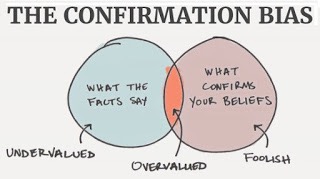
"Just me and my many shadows wrestling toward another resolution."
I knew I wasn't an objective observer, though I could have hardly suspected the depth of my biases. As both the observer and the observed, I could hardly hold myself to any benign standard of objectivity, for I have a self-image to uphold. Like any complex system, self-preservation is job one for me, and so I'll likely discount any incoming information threatening my conception of myself. I'll most likely perceive each disconfirming bit of data as a Black Swan, present but meaningless, even if it shows up in a majority of my glimpses. I fancy that I know myself, too, though I sort of understand that the me I believe I know so well changes constantly and invisibly to anyone watching as closely as I watch myself. A long-span series of infrequent observations might more likely highlight changes obscured by continual vigilance. I most often see not who I am but instead project instead who I once believed myself to be.
I avoid mirrors. They lie unashamedly.
GivingAGoodGoddamn
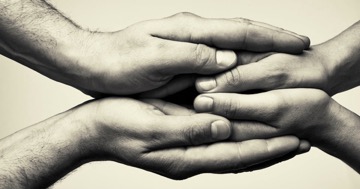
"Count your blessings, mind your 'q's, it might not much matter what else you do …"
Stumped over what to give this season? Give AGoodGoddamn. The cynically resigned will not give AGoodGoddamn, and will proclaim their resignation from the highest steeples, steeples which were originally erected by those who seemed to care at least AGoodGoddamn, maybe several of them. Fools for their faith, however foolish that might have seemed and still might seem today, they built their ridiculous steeples anyway, then commenced to ring big brass bells from the tops of them, attracting attention as well as lowly curses. How audacious! How goddamned foolhardy! How holy! The commandment insists that we not take the Lord's name in vain, but AGoodGoddamn does precisely the opposite. The stifled GoodGoddamns denigrate the holy spirit, exchanging it for an indifferent, cheap, highfalutin, nowhere knock-off. Just try to be here now and give at least one GoodGoddamn on your way through!
Imagine that everyone really is your sibling, that nobody qualifies as an even half-assed them. Give AGoodGoddamn.
StollenSunday

" … a warm and festive season blooming here inside."
The westerlies wrestled with a cold front heading South, promising but not yet delivering some sifting snow. It sure felt cold enough, though, as the first concerted cold settled in around the place. The fireplace burned all day long. The ovens contributed their part, too, for this sunny freezing Sunday marked the start of the season. The prior weekend, The Muse peeled oranges, lemons, and limes, candying the result along with eerie Buddha Hand citron fingers chopped small. The countertops had been stacked with baking trays overflowing with waves of drying peel, disrupting our regular routine through the week. I finally found some space for them atop the larder fridge in the garage so I could concoct my suppers in some semblance of peace, just in time for The Muse to turn the kitchen into a Stollen factory.
She made fruitcakes first, a cool dozen little loaves reeking of brandy and rich spice.
Literature

" … hardly the high-brow notable kind."
I feel reasonably confident that I am not a literary snob, though I do maintain certain rather uncertain standards. I have not read many of the classics, and those I have perused, I found dated and stiff. Not that I could't appreciate the skill it must have taken to create them, more that the skill had not seemed to have aged that well. Shakespeare could certainly jot down the decent sonnet, but his iams seem labored and lost on me, the rhythm often obscuring the purpose. I've never really cared for riddles and confounding word play. I appreciate flowery speech but tire of the unending garden. I despise writing that leaves me feeling ignorant and uninformed, which might leave me snob enough, unwilling to bend over to meet an uncompromising author halfway.
I grew up in a home with plenty of reading material.
TheNinnyGene

Smirking in response.
Everyone carries 'triggers' capable of reducing them into a ninny at times. TheNinnyGene expresses at what eventually become predictable times. Though most manage to keep the presence of this response secret (often even to themselves), those who come to know a person come to clearly see through whatever denying smokescreen their loved one might deploy. I feel reasonably confident that even Chuck Yeager carries TheNinnyGene. Given the right (by which I mean the wrong) conditions, he'd crap the cockpit of a P-38. I'm no different. Set me in the prep area of a surgical center, and my heart rate will attempt to set a new world land speed record while my blood pressure convinces the SurgTech that I'm preparing to stroke out on her watch. I feel perfectly placid during these events, with no sensation of horror movie hysterics. It's just my NinnyGene expressing itself.
My GP seems interested in identifying the source of my situational ninnyness, an exercise which I comment seems way too Freudian for me.
Immersion

"I sometimes wonder if they even know what they've done."
I yesterday caught myself immersed in a book. I'd started the book more out of obligation than attraction. I'd spotted it in the library and found a strange attraction to it, though it came as an English translation from its original French. Then I kept it unread for nearly three weeks before sensing an impending past due notice. Opening it then, I learned that the manuscript had been delivered to the publisher by a retired attorney who had twenty-some years earlier agreed to deliver it following the death of the author's mother. The author, himself, had thrown himself in front of a train shortly after delivering the manuscript to his lawyer. This was the author's second novel, the first having finalled for a Man Booker Prize. Upon receiving the package, a junior publishing house clerk deposited it into the dreck pile where it remained unacknowledged for several months until a more senior partner found it. A flurry of authentication activity commenced, finally resulting in publication. I didn't suspect then that this set-up was part of the fiction. The book was actually written by the well-respected Scottish novelist Graeme Macrae Burnnet.
An Accident on the A35 is set outside of Strasbourg, France, and follows a rather bumbling small city chief of police as he investigates a fatal automobile accident, but all this plot serves as a nothing more than medium for something quite otherworldly.
WeeSmall
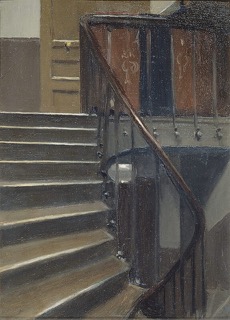
"I chose to engage in some WeeSmall choosing instead."
"from dusk till dawn,
As the clock ticks on,
Something happens to you."
from Wee Small Hours by Bob Hilliard 1955
My most productive hours come in a WeeSmall size. The hours after dawn opens up, eventually spread between horizons, but the predawn time compresses into concentrated capsules. Like dog years, WeeSmall hours contain more time, in spite of their misleadingly tiny appearance. Distractions avoid WeeSmall hours, needing more space to frantically wave around their arms. Bright shiny objects seem relegated to modest sizes situated in outer space, hardly capable of disturbing concentration. The WeeSmall hours bring contemplation, the human facility capable of sorting through life's many and varied contradictions. Without my WeeSmall contemplative time, I might simply take this world and all its charms at face value and never suspect the many and varied interpretations I might make. In this way, the WeeSmall hours fuel better-informed choosing. In the dark and the cold, I feel safe to try on a variety of alternatives. By the time the sun starts thinking about rising, I'm almost present to my day, having made some initiating decisions which will reverberate in action thereafter. I can set aside my trial balloons and set about moving somewhat more deliberately.
I will probably have figured out nothing, but I will have sorted through the nature of the confusion.
ColoradoSprings
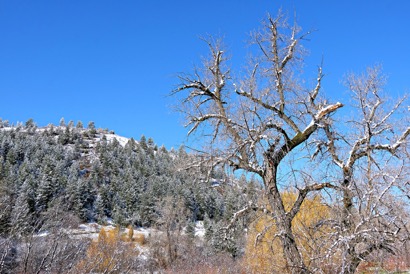
" … salvation always on the wing."
I dreaded the coming of Autumn and the demise of our languid summer. I imagined, as I always imagine each end of September, that the snows would shortly start flying and The Muse and I would be sequestered beneath a snowbank until Spring, but the seasons don't work like that here. Forgive me for forgetting, but in Colorado, Autumn and Winter features more Spring-like weather than bitter cold. Sure, the weather here can turn on much less than a dime. Temperatures comfortably drop forty of fifty degrees in an hour or two, but not every day, not even every week. The weather turns both downward and upward, some dreary days melting into warm sunshine and the sound of moisture moving into the earth. Warm enough to paint outside. Warm enough to forget even a jacket as I step outside. Some plants dry to desiccated stalks but others seem nearly impervious to frost and seem to revitalize each time the warm sun reappears, and it seems to reappear a lot here.
These Autumn and Winter Springs seem capricious, and nobody gets their hopes up for a solid week of reprieve, but a day or two, sprinkled here and there throughout the dismal seasons seem adequate to recoup flagging spirits.
Fizzle

"Soaring lasts longer than any crash."
Some plans gang agley, they go wrong. It's not really the plan that goes wrong, though, but the expectation of satisfaction the plan set up. The plan was fine, but the expectation proved faulty. The expectation, too, was just fine until it wasn't, perhaps even motivating hopeful pursuit, which is the very best kind, so the expectation wasn't really wrong either, not as long as it remained an expectation. At some hand-off point, the perfectly fine expectation fizzled out, as all expectations must eventually do. Perhaps it was whatever took over the expectation space's fault. I believe that we humans might be hardwired to expect good things to happen. Consistently expecting the worst gets classified as a mental disorder while hopefulness is seen as the cure. In that moment when hopefulness turns into cold despair, anyone might reasonably begin misattributing the cause back to the plan or the expectation, both of which were fine until encountering some Fizzle.
These discouragements sometimes prove fatal, but not usually.
Dreadline

"I wonder what will keep me awake then."
I have a deadline looming. How is it that once a deadline's set, it does tend to loom, to threateningly hover over? I once took to calling these time marks 'stay awake dates' to try to ward off the associated sense of impending doom. The purpose of a deadline should probably not be to suck all the motive force out of the effort to meet that date, but they do seem to do exactly that, so I tried to associate those dates with a more positive moniker. Still, the inherent inevitability seemed to cloud my mind no matter how I tried to counter its influence. This particular Stay Awake Date seems more like a drop dead date, anyway. I'm really not trying to stay awake, but more interested in letting the time fly by so this date will fall behind me. This one represents a surgical procedure scheduled for tomorrow morning. I've been watching the countdown clock trudge away all day. It trudges exceedingly slowly.
I'm unlikely to drop dead once this drop dead date appears.
GrowingUp
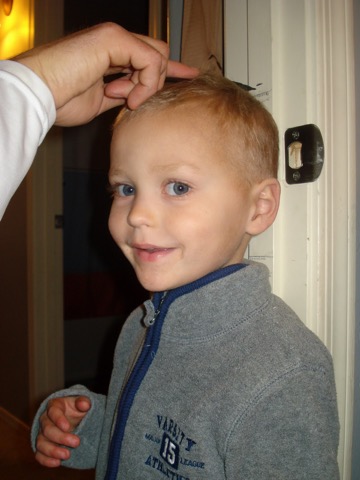
"I am about as strategic as a strand of overcooked spaghetti …"
Sometimes I wonder if I'll ever grow up. I've been growing for a very long time without really feeling as if I'm anywhere close to up. I'm still a kid at heart and not yet really much of a part of the grown up world, which continues to mostly mystify me. I prefer the company of small children, those still mastering the language but not yet outgrowing absurdity. I like to puzzle through the world with those who presume that I might know better, then demonstrate that I probably don't, and that they probably do. I tend to appear a fool around them, which suits me fine. I think I might hold the responsibility to never overshadow kids, to let them run the world we share. I don't really have much faith in grown-ups.
I know, kids grow up fast, though I didn't.
Dentity

"Holding that question seemed worthy of me, but finding the answer, deadly."
Who am I? ranks near the top of the list of Fundamentally Unanswerable Questions (FUQs for the acronymic among us). Since FUQs remain presumed unanswerable, they pose a particular challenge. FUQs never prove to be Fundamentally Unaskable Questions, though, and we tend to ask with the same spirit that governs the old Seek And Ye Shall Find conundrum. Seeking without finding remains a common experience regardless of what the homilarians (people who promote the indiscriminate application of homilies) might insist. It simply does not follow that an answer exists simply because I can ask the prompting question. Part of maturity might include the growing ability to distinguish between FUQs and the fundamentally answerable ones.
Declaring a question fundamentally unanswerable does not render it unconsiderable, though.
A Brush With The Transcendent

"… after I'd lost track of myself."
I reluctantly engage, as if facing some impossibility. I know how to paint, but never seem to trust my instincts or understandings beforehand. I make a deliberate ritual out of gathering materials, the thin rubber gloves, the defiled paint can, the handy hand-held paint cup, my spattered havelock, my special spotted shoes and smock, my ragged jeans. I try to preplan the job, imagining that my perception could extend into the near future, though I know for certain that I will never know anything until I show up and lose myself, immersed in the job. Too much depends upon altogether too much for me to foresee very much of anything. I intend to do some painting.
Painting occurs on some different plane where present remains as permanence. Imagine if a breath became a sculpture, an instantaneous addition to the permanent collection.
GoingBackToGoBackToGo

"Iterating 'more perfect' never produces perfection, thank heavens."
The General Electric Corporation's advertisements, back when it was the largest corporation in the world, used to tout that "Progress Is Our Most Important Product." What then? I assumed that by injecting progress at every step, the company plugged into a positively recursive progression, where progress built upon progress to create ever more sublime expressions of progress until reaching some sort of engineering nirvana. Then people started asking what they meant by progress. GE started focusing upon financing more than engineering, and as companies tend to do, they dabbled, then grew to dominate, a rather shady side of the street, credit default swaps and other "junk" instruments. How does one inject progressive quality into the junk financing market? GE managed it by swallowing many bad investments, essentially swallowing themselves like James Whitcomb Riley's infamous Squimum-Squeegy "what swallered his self." GE was recently delisted. Now it seems to be GoingBackToGoBackToGo on the great Monopoly® board of industry.
GE serves as just another more recent example of companies following Ozymandias' lead. The mighty fall. The great ultimately achieve greater humility.
InSlight

" … a land filled with freaks and the home of true knaves?"
The story dries up sometimes. It dries up and blows away, carried by outrage turned inward. Beyond some point, I can no longer smugly refuse to take the endless insult personally. The daily news no longer seems new. It becomes a recursive same old thing, irrational inventions intended to keep everyone feeling off balance. The only defense becomes another offense. Symbolic fences become indefensible walls. Calls for civility sound like cat-calls, chiding, deriding. The whole world seems populated with grudgy eight year olds, perpetually offended, somehow short-changed. This world then seems fundamentally unfair, bounty-hunting the good guys, posting gloating photos of her latest kill. Everybody becomes somebody's shill and everybody knows it, bracing in the crash position for the following unavoidable collision. Pick a fight, lose, then pretend it didn't hurt. Stand tall on pseudo hind legs, proclaiming another victory. A victim's victory, righteousness reinforced by the persistent absence of any discernible success.
The moral of the story seems inside-out. Good guys never win. Charity becomes evidence of great personal weakness. Humility, a symbol of absent grit.
GivingThanks

" … that trailer park experience never leaves her."
No Thanksgiving season passes without The Muse recalling the holidays she spent living in a trailer park outside Fayetteville, Arkansas. However fine her sensibilities today, she's known times when three for a buck box dinners satisfied her hunger, and times when three for a buck seemed too dear to always hope for. The beneficiary of charitable giving, she revels in her present of role as benefactor. So when the local realtor came by the place this week to drop off an empty grocery bag, The Muse's eyes lit up. The note promised that she'd be back after nine thirty the following Saturday, so the deadline was preset. Saturday morning, The Muse was up by five, asking when the supermarket opened. We were out of the house by six, a winter storm gratefully delayed for a promising few hours.
The supermarket aisles were littered with packing boxes as a cadre of clerks restocked shelves for the weekend before Thanksgiving rush.
ForcingChoices

"More choices rarely produce better results …"
Sixty years ago, when this time of year arrived, my siblings and I would begin our annual attempt to hog the new seasonal Sears Wishbook catalogue, where we'd imagine alternative universes in preparation for Christmas. I'd eyeball almost everything, mentally trying on that sweater and playing electronic football, making lists, chucking them many more times than twice, overwhelmed by the sudden appearance of so many choices. Knowing that I'd ultimately pare down my list to a bare handful only made making my choices more exasperating. The greater the number of choices, the more difficult the choosing because any choice excluded dozens of alternatives. I welcomed the early days, just after the Wishbook arrived, but after five or six weeks of concerted study, I was ready to settle for anything, or even nothing, just to conclude the ordeal of choosing.
This season, no Wishbook arrived. The local Sears sports a huge Going Out Of Business sign.
UnderFoot
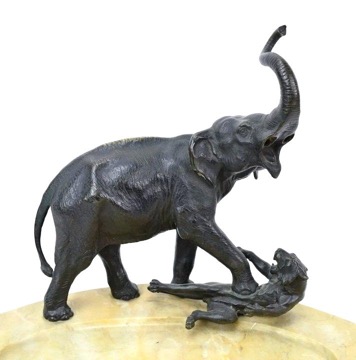
"That's ninety percent of any boss's job, anyway."
I spent my day trying to stay out from underfoot. It's a skill I learned from my earliest days. In my time (spoke the geezer), children were either underfoot or not underfoot. Underfoot was a bad state, a situation that would inevitably result in some form of chastisement. A child then should have been seen but not heard or, better yet, not seen, either. I was raised in a world almost exclusively inhabited by adults and children hiding out, lest we be seen, or worse, heard. No Black Hawk Helicopter Parents then, we were born sort of independent, or independent enough to know that we could not rely upon our elders to stroke the odd ego or attend to emotional needs. These days, and, indeed, in my own children's childhood, the kids are buddies and their parents their co-conspirators. Then, we were flotsam in public, best left to our own designs. If we made trouble, we prayed that the news wouldn't make it back to the mothership. We were largely on our own, and grateful for the space.
I spent this day trying to stay out from underfoot because I had workers on the place.
Blue-er

"I settle for accepting this tiny overwhelming one."
The sky 'turns' blue after the snowstorm passes. During the storm, the sky disappears, moving so close to the ground that it essentially leaves. Ground and what used to be sky turn into one indistinguishable entity. Up falls down and down slowly moves up as snow accumulates. Outside loses a dimension. Even sideways takes a hit as horizon shrinks to barely across the street. I stand imbedded in a snow globe where the dimensions of the globe, of the entire world, shrink to barely arm's length. Inside, the rooms seem smaller, too. The house suddenly more homey, I feel warmly contained. The world seems almost understandable then, complexity reduced to the near absolute simplicity of accumulation. I ask myself, "How deep is it now?" Depth easily and unambiguously determined, I hold no further questions. I shovel off the latest layer completely satisfied, knowing full well that I'll need to shovel off subsequent layers before the storm passes. I seem reduced to mere observer, appreciative of the narrowing obligations. I'm out of toothpaste and try to drive out, but turn around in a preponderance of caution, relieved to return unharmed. I find my travel stash and conclude that I moved on false fears, and that maybe I could accept that my responsibilities lie right here and nowhere else for now.
Acceptance seems a terrible burden. Even grace, that most under-appreciated gift, wants nothing more complicated than acknowledgement.
CityLegs

" … feeling about half the man I fondly remembered that I used to be."
In cities, people live on sidewalks. In suburbs, cars. When not on sidewalks, city people might hop a bus or the subway, sometimes even grab an Uber between neighborhoods, exiting onto yet another sidewalk again. In suburbs, it's cars all the way down. When the suburban visits the city, they drive their car, which they are shackled to for the duration of the trip. Should the suburban find themselves fortunate enough to find a place to park their car, they also find good reason to grumble about the price for parking, then still find themselves shackled to wherever they parked the damned thing, carefully monitoring how far they've wandered lest they find themselves cut off from their hasty escape. City people develop CityLegs, ones accustomed to a twelve block stroll. Suburbanites might notice blisters forming on their feet after four or five blocks. And the blocks seem so big, littered with distractions, shops for every faction living there; with curious customs. The proprietor might want to chat. What should a puzzled suburbanite think of that?
The urban/rural divide isn't a simple six of one versus a half dozen of another. It's long division, requiring some heavy lifting to carry remainders across columns separated by wholly different dimensions.
Armistice

"Let us bless each other, then, for nobody else could ever be qualified to."
I wasn't there, a hundred years ago today. Neither was my maternal grandfather, though he was in uniform sitting on a troopship in New York Harbor, halfway there from home. Amy's grand uncle wasn't there, either, for he had become a casualty of that last big push along the Marne, mired in mud and insanity like this world had never before imagined, and can hardly remember after. Twenty million, probably many more, had been disqualified from attending, too, having become casualties before hostilities could cease. A few millions more, who might have attended but didn't, and a few who did show up, would fall prey to the Spanish Flu within the following year or so. It was a time when on any day, someone might simply go away as if they'd never even been here. They sang that they were over there though none knew where over there was or would be.
Last year, The Muse and I were honored to visit the cemetery where her great uncle lies, a stunningly beautiful park.
DazeOff

"Forced into mindfulness, we muddle around hoping to stumble back into our familiar habituals again."
Years ago, The Insurance Company where I worked distributed Covey's Seven Habits to all management, strongly encouraging each recipient to carefully read the book, for it described how the company would henceforth operate. This title remains the only book I've ever felt moved to burn after reading. It helped accelerate my timetable for leaving the company and not only because it described a manner of living utterly alien and repulsive to me. One may not prescribe any habit without bumping one's head on a low-hanging Be Spontaneous! Paradox. Habits remain the antithesis of mindfulness, more indicative of obsession or compulsion than choice. The author described what seemed to me like a two dimensional solution for an n-dimensional difficulty, a superficial strategy for inducing some sort of pseudo-significant effect, affects too-desperately seeking causes. I felt crazy reading it, so I figured the very best service I could provide to the world would be to eliminate any possibility that my copy might infect anyone else, so I built a fine fire and threw that sucker in there.
Books don't burn all that easily. It seems as though they resist actually burning.
VoeTing
"What we choose to do with the result determines its meaning as well as its significance."
In his Hitchhiker's Guide To The Galaxy, whenever author Douglas Adams' protagonist Arthur Dent found himself in serious peril, an impossibility generator would shift the plot into something completely different, if not always any less threatening. I think of voting as just such an invocation. Some mistake it as a referendum on knowledge or intelligence, and understandably so, but improbability generators hardly ever produce logical or rational (knowledgeable) results, but usually unlikely ones. Before the election, pollsters and pundits carefully take the electorate's pulse, just as if an electorate possessed such a thing, then project results with appropriate-seeming ranges of probability. Sometimes these predictions turn out to be true, though nobody ever investigates the root cause of their seeming accuracy when they are right. Folks seem altogether too busy failing to explain instead why they were wrong when they turn out to be wrong, the correct answer finally becoming beside anyone's point. This practice only seems smart, and might actually be smart, but how smart is smart in practice?
My point about voting might be that it is almost but not completely unlike (to borrow another Adams phrase) an exam. It was never intended to survey for correct responses, though each voter might well hold convictions about right and wrong for themselves.
Wealth
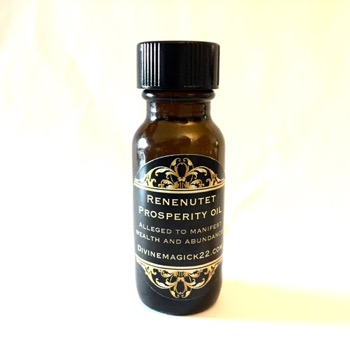
"I am a serial offender against the Law of Attraction."
As I neared graduation from my undergraduate studies, envoys from the Business School started asking me to coffee. Some of these had served as my instructors through my three years of university study. They described the turbo boost that a Master's would add to my upcoming career, and the B-school would finance it all if I agreed to teach classes while I studied. The two year commitment would guarantee me sixty or more hour weeks. By then, I was holding down a full time job and a little more than a full load of classes, burning myself out trying to rid myself of the damnable anvil of schoolwork. I had a family by then, a newborn son and a wife with clear and undeflectable intentions of of bearing a second child shortly thereafter. We'd just been displaced from our rental by a landlord who chose to raise the rent monthly to keep up with the fifteen plus percent annual inflation rate. We'd borrowed from family to buy our first house, a place that we didn't know would quickly lose twenty percent of its value, in the hopes of at least stabilizing housing costs. My job paid for my books and tuition as an employee benefit, but I had to work full time to collect the benefit. My life already seemed plenty turbo-charged at that moment.
I declined the opportunity to pursue my MBA, reasoning that my time spent with my newborns would not be deferrable until any later date. I simply didn't want an MBA enough to sacrifice what I was already barely holding onto.
DaylightEnslavementTime
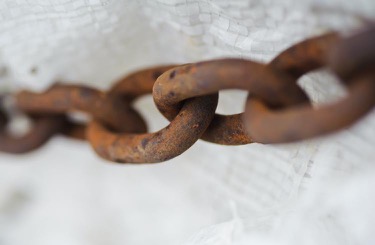
"I'll probably recover."
Once there was a time before time, before we managed to finely measure it. Then, all time was approximate, never exact, or never more exact than a cast shadow. When the sun stood directly overhead, one could say, "It's noon," without receiving a bunch of guff in return. A mile down the road, noon arrived at a different time than it did here; a constant difference, but nonetheless a difference. When mankind still moved at the speed of a walking horse, these differences didn't matter to anyone. The telegraph and steam-powered transportation changed everything. Once train passengers needed to make connections with steam ships, it became a lot more difficult to determine the time. The mighty Union Pacific operated on Omaha time, two hours ahead of Oakland time. A steamship might maintain its schedule according to its headquarter's time, meaning that Omaha time and Cherbourg time collided there. Modernists finally managed to negotiate an international treaty which calibrated standard times relative to Greenwich Mean Time, an act that infuriated farmers and fundamentalists worldwide.
During WWI, various national governments took exception to their earlier agreements, instituting a more thoroughly modern Daylight Savings Time, reportedly to provide more daylight to aid in the manufacture of war materiel.
LarderFridge

"Certain ethics govern the acquisition of a LarderFridge."
Three and a half years have passed since we last owned a LarderFridge, a ramshackle second refrigerator intended to hold overflows. leftovers, and beer. It's been a genuine ordeal. In Winter, of course, we enjoyed the walk-out refrigeration services the weather delivers directly to our deck. Last week, the pot of leftover pozole and a nearly full gallon of sweet cider sat knee deep in fresh snow, though by Friday that snow had melted and I had to direct the refrigerator's contents to scrunch up so those babies would fit inside. Late in the week, The Ever-Vigilant Muse noticed another refrigerator give-away on the local listserv and she immediately contacted the owner. We'd been trolling for a free fridge for three and a half years, narrowly missing more than a few. This time, the owner replied that she'd already found a taker, though she'd leave us in the queue. Friday, she contacted us again, saying that the first taker had declined the offer. We readily and unconditionally accepted, sight unseen. We were that desperate for an "extra" fridge.
Certain ethics govern the acquisition of a LarderFridge. One may not, for instance, just go buy one, for that would demonstrate both a lack of faith in providence and a demeaning over-eagerness.
MisterCommunication
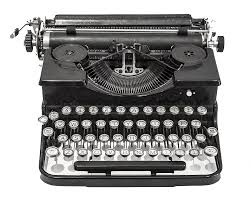
"Maybe we could muster a week-long workshop on interpersonal miscommunication."
I think of myself as a solid journeyman communicator, certainly not a master. I've studiously avoided delving too awfully deeply into any of the many linguistic theories and practices. Neuro-Linguistic Programming gives me the creeps. Noam Chomsky reliably puts me to sleep. Formal grammar simply seems beyond me. I navigate language employing a mostly-reliable felt sense. I generally manage to make myself understood. I'm quick with words, skilled as producing the encapsulating phrase, and, though a lousy speller, a half-way decent writer. I still surprise myself, though, when rediscovering the first principle of communication, that it's often the illusion that it's occurred. I'm perfectly capable of flowing along convinced that I'm on the same page before shockingly catching on that I'm not even in the same library as my counterpart. I'm growing toward accepting these disconnects as imperfectly normal, though they still shock me every time.
I learned last night that The Muse will be heading out to attend a week-long workshop in New Orleans on Monday morning.
FallowTime
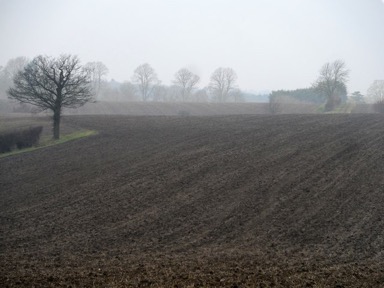
"Nothing like that looms until planning season comes."
Long planned, I quickly executed the work in four days spread over three weeks, owing to the weather and my personal preference for procrastination. Too much sun or two much wind and I figured I was better off waiting for some better moment. The final push, two frenzied days, occurred as they always seem to, in a blur. Once I allowed myself permission to finish, goosed by the clear threat of an impending snow squall, I left my senses behind, immersing myself into the job at hand. Those final few sandings, several squirts of supplemental caulking, some final perfunctory smoothings of unredeemably rough surfaces, and I started opening paint cans. Oil based primer for the bare spots, a thick acrylic to smooth over gouges and caulkings. The acrylic dried to the mottled patina of Elmer's® glue. This first frenzy left me with nothing to do until the next day.
The next day, I debated whether the final day had actually, finally, arrived. By mid-morning, having finished my writing for the day and feeling terribly ill-at-ease, I finally surrendered to the inevitable.
Complicity

"Life amounts to endless lessons in humility."
In his book Seeing Systems, Author Barry Oshrey describes what he calls The Blindnesses. I am unavoidably blind because I'm here, not there, like you are inescapably blind because you are there and not here. We're also mostly blind to the fact that we are blind. In my Seven Ethical Responsibilities, I name Conscious Blindness as an ethical matter. I believe that I hold the ethical responsibility to not space out the fact that I cannot see everything around me, and to remember that nobody else can see everything surrounding them, either. This reminder encourages a certain generosity of spirit. I cannot credibly hold anyone responsible to be fully clued in, including myself, not to make whiny excuses, but to better understand and appreciate.
All that said, I'm coming to a renewed recognition that to live is to be complicit.
DiffsGiftering

"The difference finally starts feeling like a gift rather than a curse …"
Those of us born with few natural gifts might understand better than those born with an abundance of them. We learned to hide them lest they expose us as different, for as we all learned in Junior High, different is bad, sameness, much better. Some of us struggled to fit in without noticing that we worked much harder to cloak our differences than we would have ever had to work to embrace them. School, which might be best understood as a systematic process for instilling self-consciousness, reinforced the notion that different was at best a difficulty. So much easier and more efficient if everyone could just color within prescribed lines. At the end of the year, if I'd successfully respected the edges, my teachers declared that I'd passed, which meant that they hadn't found me out; a victory … of sorts.
Junior High provided an exquisite introduction into the fine art of passing, an invaluable ability as one sought to enter ever higher levels of self-consciousness: university and the working world beyond.
SchKnowDay
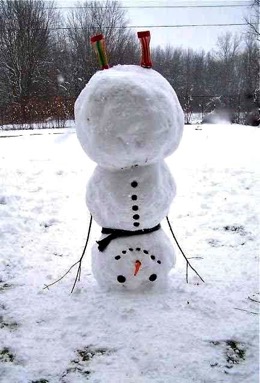
" …to those affecting the flat American dialect, … I'm forever Smaltz and The Muse, Swab …"
The rumor starts a few days before. By the time it becomes a genuine forecast signified by the red triangle with the exclamation point inside, it's already arrived. Our behavior changes long before the first snow falls, though. I'm up and out, driving in pre-dawn darkness to the closest supermarket to restock the larder lest we get snowed in and starve. Neither The Muse nor I have been in any real danger of starvation since Reagan was President, but one never knows. I suspect that vestigial memories linger from that terrible Autumn of 1804 when our ancestors barely survived to carry forward our DNA. We know how to prepare for snow.
I try to talk The Muse out of going into the lab today, thinking myself just acting prudently.
Jigs
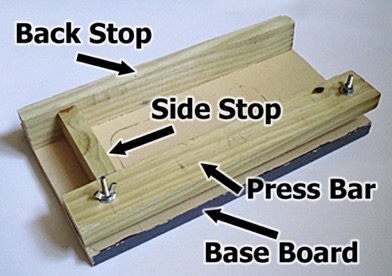
'They've figured out our shortcut and know how handy we aren't.'
The jig serves as the craftsperson's secret weapon. The sculptor, the painter, the quilter, the woodworker each employ special-purpose tool-guiding tools which remain almost unknown to the casual hobbyist. The master's freehand work might not produce anything any finer than any rank amateur could muster, but on the master's way to mastering their craft, they first mastered crafting the lowly jig, which could more consistently guide their hands guiding their tools. The absence of jigs in my toolbox clearly demonstrates that I am not a master of very many crafts. My father's old carpenter's square helps me mark true perpendiculars. A scrap of tape on a drill bit helps me avoid drilling holes too deeply. The pilot holes I drill before setting long screws not only prevent splitting the stock but guides the screws better than could my naked eye and unassisted hand.
Writers employ a variety of jigs, too, most of these almost invisible in the finished work.
PrepWork

"Are we there yet? Probably not."
Outside of industrial mass production, most work seems properly classified under the label PrepWork. Cooking supper mostly amounts to waiting for the oven to finish. Prepping whatever's cooking might have needed hours of concerted effort to process without producing anything more than supper's components, which the oven will finish without any active cook's intervention. Planting a garden's about 80% securing and schlepping supplies. Even mopping the kitchen floor involves much more moving chairs and Rose The Skittish Spinster Cat's feeding station than actual mopping. Because of this feature, I understand that most chores have been mislabeled, and this leads folks to misinterpret what tasks entail. Painting's almost entirely PrepWork. Even laundry requires more sorting than washing, yet nobody declares that they're off to sort laundry, but to wash it. The machine does the washing. No machine knows how to properly sort laundry.
PrepWork seems the source of much of my frustration as I rediscover that the effort I anticipated hardly resembles the work I find I must do before I can do the work I expected to be doing.
Debasedball
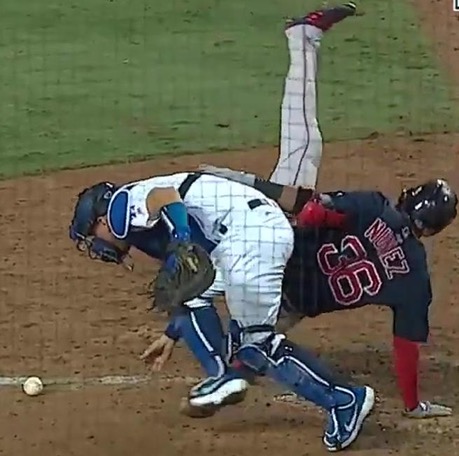
" … no further injections needed or wanted until Spring."
Post-season Major League Baseball offers a final opportunity to shed the seasonal obsession before the playing ends. Without it, a fan might face a cold turkey withdrawal from a dependency not yet overcome. After, a fog of distain remains, a gratitude for evenings returned, a deep appreciation for the absence of a long-lingering obligation. Fans seem superstitious folk, ones who firmly believe that the simple act of listening in to the proceedings assists the beloved home team. They can't hardly stand to miss a single outing, they hold their deluded responsibility so dear. By the end of the regular season, a definite parting begins. The home team hasn't made the playoffs again, in spite of the fan's unflagging long-distance support, and no team making the playoffs seems nearly as dear. The fan makes it clear to anyone within hearing distance that all joy has already left Mudville, though they'll consent to dabbling in a likely mediocre witnessing of the remainders, but only for old time tradition's sake.
The playoffs bring fresh underdogs needing someone to root for them, and the fan eventually complies, choosing a least likely but somehow most lovable from each league's roster.
SlowNewsDay
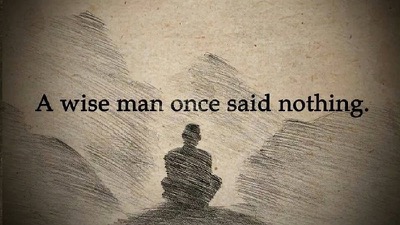
"Only the paint ever knows how to dry."
I hold the strong opinion that watching paint dry has been unfairly denigrated, for few experiences match the subtle satisfaction, after a few hours spent applying paint, of simply sitting back and watching it dry. During those times, the Earth seems solid, the sky blue, and the universe in good working order. The fresh paint scents the scene with cleanliness, even godliness. All's right with the world. A freshly mowed lawn comes in at a close second place, the activity having raised a slight glow of sweat which evaporates off with a soul-cleansing psychic sigh. The satisfying payoff might be the explicit permission to revel in doing nothing at all, watching paint dry being a dodge and not really a producing activity at all. Give the same guy placidly watching his freshly applied paint dry the opportunity to sit like some Zen monk in any other context and he'd likely fidget nervously in place, self-consciousness subsuming the opportunity for enlightenment. Focusing on that paint, though, the same man experiences true transcendence.
I open the paper, hoping for a SlowNewsDay.
LongDay
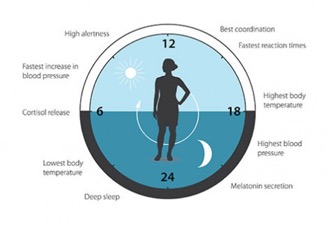
" … sleep decided to stay out all night carousing with unreputable friends."
The Hunter's Moon, the final full moon before we set about setting back time this season, introduces a sort of circadian arrhythmia. It's a relatively bright moon, given that night has already fallen by the time it shows up. The Autumn air seems thinner and shadows streak the neighborhood until just before dawn. The nightlight seems particularly bright and sleep grows disinterested in her usual engagement. I lie awake lying to myself, pretending to feel sleepy, closing my eyes without amping down my suddenly hyperactive brain even a tiny bit. I'm raring to go with nowhere to go, playing solitaire charades until I finally just abandon the ruse. Not yet two am, but I'm up and wandering the halls already.
I search for Rose The Skittish Spinster Cat, concerned that she might have slipped into some inescapable corner of the place. She hadn't shown up for last call.
HitHard
.jpg)
" I suppose that it's nobody's fault."
On August 24, 2018, Geoffrey Weglarz (alias Geoffrey Corbis) drove into New York City from his home in Connecticut to sell a camera tripod at a photography shop. They gave him a check for $275. He next went to his bank to cash that check. The bank had a policy of calling the source to confirm that the check was good, but the shop had closed for the day so the bank refused to cash the check. Geoffrey drove to the Lower East Side, parked his car, and drank a vial of poison he'd acquired on the dark web. He texted his sister in Florida saying that the stuff tasted every bit as terrible as he'd feared, then he died sitting in the driver's seat of his car. His family contacted the NYPD several times over the following week seeking their help in locating Geoffrey. The found him a week later, still sitting behind the wheel of his car.
Geoffrey started his adult life as a dinner theater actor, a passion he continued to pursue until shortly before he took his own life.
GooDooding

" …I'm likely to just give her what I think she wants to receive in return,
and that without even asking her what answer she wants."
A quarter of a century or so ago, my dear friend Wayne Strider caught me inflicting help. He patiently explained to me that most help works better if one remembers to first ask the target if they want help. Simply seeming to need help doesn't mean that someone wants it. He'd caught me presuming. I think of myself as a helpful do-gooder type, delighted to assist, sometimes altogether too delighted to just jump in and assist without first asking for permission. Maybe that kind of help might be better classified as self-help, the sort of help one provides to feed their own need to feel helpful. It's one of the more popular ways to drive others crazy, a benevolent double-bind, like insisting that another put on their sweater because I'M cold.
Let's call this curious assistance GooDooding.
SafeSpaces

"Places without SafeSpaces seem miserable places, indeed."
I've recently seen a lot of commentary complaining about SafeSpaces. The complainants seem to subscribe to the What Doesn't Kill You Makes You Stronger school of social advancement, as if an absence of safety toughens people, encourages bravery, and yields straighter backbones. I'm of the opposite ilk. In my experience, the absence of safety brings out some of the worst in people. It might shut them down or set them off, neither state terribly conducive to full engagement. If I've got one eye employed to keep a watch out for someone sneaking up to get me from behind, I can't hardly keep both eyes peering ahead. For me, SafeSpaces seem fundamental to any endeavor.
Not that any of us should avoid at least preemptory preparations for the odd worst case scenario, but worst case scenarios so rarely occur that it seems pointless to over-prepare for them.
AmNot

"I'd find the controversy laughable if it weren't so damned serious."
I am not a Capitalist, a Christian, or a Conservative. I accept that these nots alone render me a shadow in this culture. Add to these deficits the fact that I'm also not a chauvinist of any color and therefore decidedly not a patriot, and I essentially become an anathema of an American, though the original charter guarantees me the full freedom to embrace whatever beliefs I feel moved to hold. The freedom of speech does not guarantee anyone the right to scream Fire! in any crowded theater, and being no dummy, I remain mostly mute when it comes to my true beliefs. Culture, whatever that might be, always seems to retain a dominant perspective along with the will to squelch and smother those failing to subscribe to that outlook.
During the American Revolution, no more than a third of the population supported the uprising. A third firmly supported the king, while another third refused to take a side, viewing the resulting war as an unfortunate choice.
Loaves&Flinches
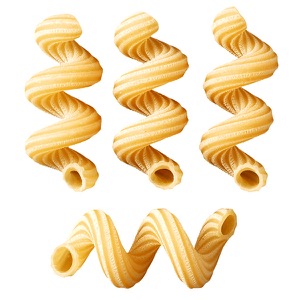
"One startled flinch in preparation could have ruined the whole enterprise."
Back in Jesus' time, when the odd multitude showed up for supper, loaves and fishes were the popular response. Bordering The Sea of Galilee, fishes were common as pebbles then, and once you get started making pita loaves, you can't hardly stop, reliably producing dozens more than intended every time, so loaves were always in surplus, too. Another positive aspect of this menu was the Wow! factor, as one could plate it almost as if by magic. Everyone at table couldn't help but feel as though they'd been especially blessed and had witnessed a miracle of sorts. In those days before the invention of Miracle Whip®, a host, even the host of hosts, could not rely upon store bought to beatify any guest.
These days, mac and cheese fills the multitude menu slot. Macaroni drenched in a cheese sauce comes about as close to fully fungible as one can get without a handy Galilee and a neighborhood of over-achieving bakers.
Errants

" … a whole five days will stretch to the horizon to promise fresh errants needing my attention."
The Muse and I live in a neighborhood from which we cannot walk to anywhere. Though we're plopped in the middle of a wildlife refuge, the only trails seem more suited to game and dog walkers than any through hikers. Even the village center lies a mile and a half away along a narrow-shouldered two-lane that feels equally dangerous to traverse by either foot or bike. Consequently, errands require driving, belying the rugged outdoors cache this conclave carries. The Muse was raised ten miles from anywhere on a South Dakota farmstead, so the commuting seems more wired into her system than into my own town-bred DNA. I'd much rather walk there and back again, but groceries wait ten miles away, uphill both ways, and I haven't figured out how to carry a couple of shopping bags there and back again. I'm married to the car.
I try to plan ahead, to limit the number of outings necessary to satisfy the list. I plot paths between the various purveyors as carefully as any knight Errant might, employing shortcuts and secret passages to reduce overall transit time.
Illiberation
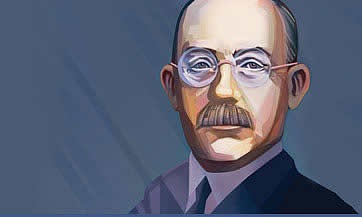
My hero: Henry L. Gantt
" … the utter subjugation of every individual contributor to the will of the machine."
Henry was a very smart bear working for a very powerful man. The powerful man was an authoritarian, convinced of his own genius, who strong-armed his way into giant corporations, gaining permission to implement tactics the owners lacked the hutzpah to introduce themselves. He called himself a scientist, though he was more Puritan than professor. He touted The One Best Way, and was so convinced of the righteousness of his cause that he infected others with his zealotry. He believed in First Class Men, those who exceeded his expectations. All others, he believed, lacked sufficient motivation to succeed and were therefore unworthy of receiving anything.
Henry worked as a sort of chief of staff to his patron.
Recovery

"A glass of beer's hardly worth the risk of a long night spent freezing in the backseat of some stranger's car or a crudely sliced artery leaking life."
Autumn along Colorado's Front Range feels volatile, like a slow-motion drunken bar fight. Nobody ever explains what sets off this country grown complacent from months of placidly sweet weather punctuated with no more than a few much-needed showers and the occasional thrilling hail storm, but by October, the situation turns deadly serious. The sharp edge of a Canadian cold front slips into the fray and everything instantaneously changes. A quiet threat's exchanged which almost nobody takes very seriously, the sun still shining warmly and a breeze hardly ruffles barely turning cottonwoods and aspens. When the slash comes, it takes me by surprise. I'd forgotten how savage that first swipe could be and my native generosity takes the first cut. I flee inside and start plotting my own demise, certain that I'll be sequestered there for the better part of the next half year.
The following day, the damnation seems permanent.
Figure/Ground

"Which it really was never really mattered."
I believe that I live in a holographic universe where what I see ain't exactly what's there. This belief could certainly drive me crazy if I took it too seriously; for instance, if I believed that something of genuine substance really should be there. I understand that my first pratfall should have persuaded me to take these holograms seriously, but sensation also seems rather holographic, transitory by nature, there then gone. This whole place seems like a figure/ground projection where whatever's attracting my attention amounts to the figure and everything else, backdrop ground, hardly perceived, so hardly there. Both the figure and the ground also seem continually present, only distinguished by where I'm focusing. How real is real? Not terribly, I say.
Physics seems to stack up on my side of this controversy, explaining as it does how everything's composed of stuff we cannot perceive in its native atomic state.
ShowFall
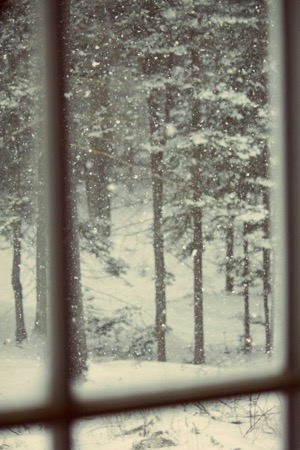
"I spent the longest time timeless there."
The snow day came on a Sunday, seventeen degrees and snowing like a Son of a Bitch outside. The weather reporter insisted that it had never been this cold here this early in the season, the previous record low only in the mid-thirties. We were headed for single digits overnight. The paper never came, though the roads remained bare, still holding heat leftover from yesterday's nearly seventy degree sunshine. The neighbor kids were out in it, screaming down the steep sidehill, scraping it bare before the snow could gain any real depth. Rose The Skittish Spinster Cat huddled so close to the gas fireplace that she seemed to steam as she slept. I grabbed the latest John Sanford Freaking Flowers novel, a serendipitous find at the library the morning before, and retreated to the master bedroom to read and revel in the sublimely isolating weather. Neither The Muse nor I were gonna spoil that fifteen dollar car wash sloshing around through snow.
By the next morning, the roads would likely be bare and dry. At this altitude, nearly eight thousand feet, once the snow stops and the temperature drops, moisture evaporates off the asphalt so quickly the roads swirl with steam, ice never getting a chance to set.
TheLastDayOfSpring

"I smile myself to sleep …"
The Muse and I celebrate, truly celebrate, two days each year: The First Day Of Summer and The Last Day Of Spring. The First Day of Summer arrives sometime in late May or early June on the first weekend following what seems likely to be the very last Winter frost, the day when we pull out all the pots and plant what will become our Summer garden on the deck, out of reach of the scavenging deer. The Last Day Of Spring comes the weekend before the first heavy snowfall of Winter, usually in early October, when we tear down our summer refuge. These days carry deep significance for us. The First Day Of Summer represents our active resistance to the degrading effects of seven or eight months of sequestration. The Last Day Of Spring represents our active acceptance of entering hibernation again. The First Day Of Summer lets come. The Last Day Of Spring lets go.
We exhibit great energy on these days, facing a body of physical labor greater than any we will enjoy on any other day of the year. I'll schlepp and scrub while The Muse plants or repots.
Copyediting

" … sit me down to copyedit and I seize up."
I drag both feet when it comes to copyediting what I've written. I write in three month batches, finishing each piece to a readable state, then collate the heap into a contiguous form before carefully re-reading to make final improvements. The whole parses differently than individual pieces and copyediting hardly encourages itself the way writing does. It's picky work, the sort requiring focused attention. I can't get too caught up in the content or I lose the necessary broader focus, but I dare not get so elevated within any broader focus that I cannot catch the tiniest necessary correction. I find this work to be endlessly boring, nap-inducing, and infinitely unsatisfying. I engage in it only in very small
sessions, twenty minutes or a half hour, before I find I simply must focus upon something, anything else. I exit feeling emptied.
Every time I exit feeling emptied, I feel less motivated to re-enter and finish this scut work.
ZeroSum
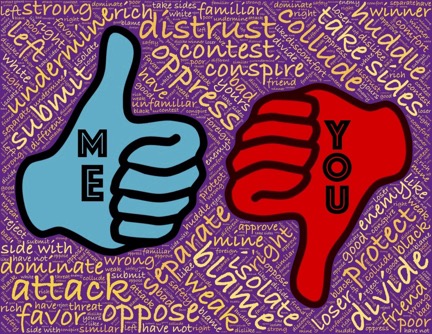
" … a winner of sorts sitting there all alone."
The conservative worldview seems to embrace the notion that zero-sum rules govern this world. It perceives this world as distinctly divided into winners and losers. Those who win, win. Those who do not win, lose. Progressives seem to perceive the world differently, as if this were an abundant place where winners need not produce losers; where win/win outcomes remain possible if not always likely, where ingenuity and persistence have pretty reliably produced some semblance of better for all: abundance. The world itself seems indifferent to which perspective anyone takes. It seems to produce whatever any perspective insists upon. If you believe in a zero-sum world, the world will not disappoint your expectation. If you believe in an abundant one, it might well satisfy you, too. The outcome seems sealed by the tenacity with which one holds their particular belief. The world might be a self-fulfilling sort of place, a medium capable of delivering upon anyone's convictions about it.
Many of us aren't terribly experienced with abundance. We honed our economic chops playing Monopoly®, a zero-sum board game promising to reveal the secrets of the rich and famous.
TheAverageOfOne
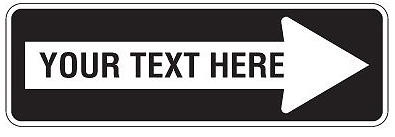
" … every single human being is also above average … "
In Garrison Keillor's mythical Midwestern town of Lake Woebegone, " … all the women are strong, the men are good looking, and all the children are above average." Of course, in any discrete population, not everyone can possibly end up above the average for anything. Call this The Law of Averages. In any population, whatever the purpose for sampling, some will fall below and others above the designated midpoint. A few might classify as spot-on average, but no group can possibly be comprised of entirely above averages. This small fact has yet to dissuade organizations from carefully recruiting only The Best and the Brightest, to attempt to violate The Law of Averages and produce a high performing Lake Woebegone sort of operation. This strategy hasn't worked yet. Yet.
I can, however, inhabit a real-life Lake Woebegone.
Reasoning
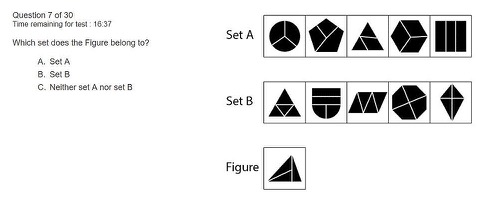
" … survival of The People seems to find in favor of those few."
Like many in my generation, I first encountered logic in an algebra class. I didn't understand that I was encountering logic at the time, so I struggled to remember all the strange new rules. My teachers treated these curiosities as simple extensions of the trivial principles governing arithmetic, but they seemed much more complicated, so complicated that I never managed to fully sort out or assimilate them. I experienced endless Easter Eggs, imbedded practices not obvious upon initial scrutiny and apparently only discoverable when the instructor judged my answer wrong. The gists never popped for me, so I learned to fake it, to work backwards from the answers in the back of the book or demonstrate my faith in an invisible higher power when taking an exam. I faked well enough to eventually earn a university degree, though the logical reasoning underpinning at least the mathematical part of that certification still escapes me.
My second encounter with logic came when I sat down to take the SAT exam.
Silenced
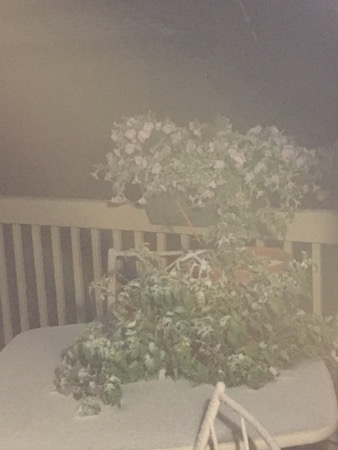
Tomato plant succumbing to snowfall
"I have nothing left to say about anything."
The weather reporter insisted that it wouldn't snow until tomorrow, most probably over tomorrow night. I figured I'd have the whole day to watch the summer flowers bask in their last day gracing the back of the place. Yesterday, the fog hung low like on some backlot from an old Sherlock Holmes movie, humidity hovering in the nineties all day. I brought inside the huge three and a half year old geranium, and the half dozen basil plants so The Muse could make one last big batch of fresh pesto, along with the hibiscus, even though I know the hibiscus won't like it one bit in the house. It was still blooming, still late Spring in its head, and I felt it only decent to at least try to extend its life, even though I well understood the futility involved. The months of tender care, the casual evening fare grilled out there almost every night, are gone now. Silenced by the first Fall snow.
Autumn arrives abruptly here along the Front Range.
WorkSing

"If you ever meet me on a golf course, shoot me. You'll be doing us both a great favor."
I have a difficult time envisioning my great grandparents hanging out. I'm uncertain if hanging out had even been invented then. They busted their humps for their entire ninety year-and-then-some lifespans. Even in retirement, they hardly slowed, having mouths to feed and a small home to maintain. They just kept at it until they were no more. I suppose that the notion of leisure as a just reward for labor originated with people who had insufficient work to keep them entertained, potentates and such. Later, it was sold as a promise, perhaps to mollify those who labored at the more exhausting jobs. Keep your nose clean and you could be playing golf on Saturday. In the mean time, tote that damned bale, slave.
I think the smooth transfer of the desire for leisure failed for me. I understand that it has now become an imbedded part of the amended American Dream, but it seems a more nightmarish threat to me.
Crapmanship
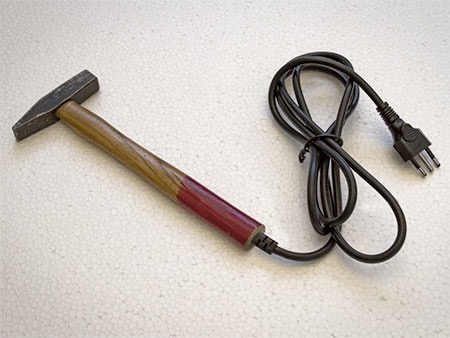
"I'd better find my satisfaction in accepting that I fooled at least those eyes."
Replacing three sun-rotted window frames, I couldn't avoid encountering evidence of Crapmanship in their original fabrication. This sort of discovery doesn't qualify as in any way unusual, for stuff has always featured mixes of Crapmanship and craftsmanship. Exteriors tend to look as though they were painstakingly put together, but beneath any surface, which might have been no more than expertly painted, some real crap work likely lurks. I'm still learning not to become all indignant about this apparently eternal feature of this world. I understand that internal workings might not really require fine-looking construction to serve an intended purpose. We all seem to cut corners that don't seem to matter much. We hack, therefore we are.
I've of course added my own unique brand of shoddy into my fixes. I'm not the finish carpenter my grandfather was, so I improvise.
Tolerence

"I wonder where our underlying Polity lies."
The Puritan Roger Williams founded his Rhode Island colony on the principle of tolerance. The Massachusetts Bay Colony had earlier drummed Williams out of their society, which they'd founded upon the principle of extreme intolerance, as though he had failed to demonstrate true Puritan values. He had. Williams welcomed all comers, Muslims, Jews, even agnostics, though he never actively supported any of their ideals. He explained that tolerance does not extend to supporting anyone's beliefs, but only as far as supporting the right to hold any belief. He thought Muslims and Jews damned, but he also considered their damnation to be their own damned business. Williams was fortunate that his principle of tolerance failed to attract many intolerant Puritans to Rhode Island, for even a minority, dedicated to promoting intolerance, can utterly destroy any tolerant society.
Karl Popper reflecting upon Germany's initial tolerance of the Nazi movement, coined the term The Paradox of Tolerance.
Manliness
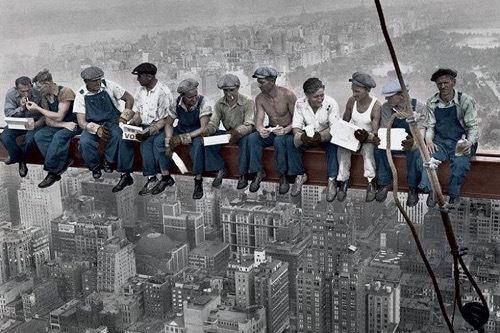
"Manliness might qualify as the most misunderstood identity."
I always wondered how one becomes One Of The Guys or A Good Old Boy. Maybe my invitation got lost in the mail or perhaps I (gulp!) never qualified. I know that I never submitted an application, but I sort of expected someone to approach me with an invitation. After all, I am a guy, a good guy; aging, perhaps even old, though admittedly no longer a boy. Can I confess that I never fully identified with the gender stereotypes supposedly appropriate for a person of my gender and my age? I look ridiculous in a hard hat and feel simply silly behind the wheel of any truck. I fear all power tools. I don't hunt. I do drink beer, though. Doesn't that count?
I proved to be an unreliable breadwinner, but tried not to take that very personally. I've lived exclusively with strong-willed women, each of whom proved to be more than a counterbalance for any deficiency I contributed to the unions.
Humility
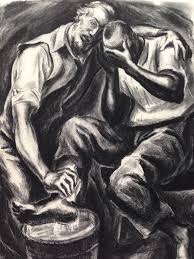
Walt Whitman washing the feet of former slave; illustration by Lewis C. Daniel
"I learned almost by accident that my words inspired someone yesterday.
How humbling was that?"
What big, hairy, audacious things have I done in my life? I sincerely hope my answer will continue to be, "Nothing." Not that I've achieved nothing, just nothing that might be construed as big, hairy, or audacious. I've done my work, but hardly ever with the intention of cornering any market, making any kind of a killing, or achieving fame or fortune. I thought once that I might get discovered and gain wide popularity, just like every baby boomer did, for we were the first generation raised in the proximity of celebrity. Prior generations read about the rich and famous or heard them speak on the radio, but our generation invited them into our living rooms where they dazzled us with their mastery, brightening our otherwise drab existences. That these demonstrations were heavily produced and edited to ensure that only the best of the best ever showed, was not obvious to us casual observers. We thought pure talent poured out the ends of these performers' fingers. We marveled at their skill.
We learned that popularity might just be the purpose of life, that we should rightly strive for broad audiences.
Trolling

"Maybe I'll eventually learn to give up these ghosts more quickly."
I do not get where they're coming from. They arrive like non-sequiturs into the conversation, off-topic, sometimes even off-color. I at first think I've tumbled into a simple misunderstanding. I might take almost forever to finally figure out that this was never a misunderstanding. It was sabotage, clear and simple. Well, not clear to me at first, but ultimately simple. They seem to take some strange kind of power from diverting the flow. Their superpower seems to be the curious ability to undermine any flow. I finally exhaust my ability to make anything like a Most Generous Interpretation because I finally figure out that generosity isn't part of any troll's vocabulary. They specialize in leaping into a Least Generous Interpretation. They parse an analogy literally, then head off to rebut a comment never actually made. They seem to love being maddening.
My earliest attempt at social media, a wiki called PureSchmaltz, was ultimately brought low by anonymous posters who sprinkled obscene photographs throughout the content.
CarSpooling
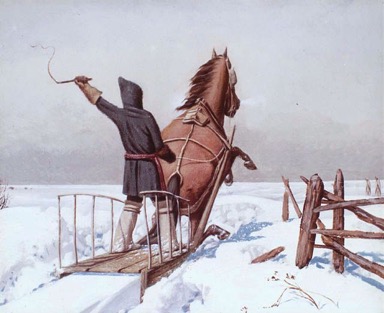
William G.R. Hind, oil painting, “Breaking a Road in Manitoba,”
" … there's really no place I need to be (or really want to be) except right here at home."
The Muse and I operate a one horse town, by which I mean we own a single car between us. Each of our neighbors own at least two, and one owns four that I know of, all more or less trucks. Each morning, we decide who will get the car that day. Usually, I insist that The Muse take it, that I don't have anyplace pressing to go. Some days I slip out for a few minutes to fetch a gallon of milk or some hardware for a project before she leaves, but most days, I'm left without transportation, save my ancient one speed bike and my two left feet. We live in a neighborhood which calls itself a village, and it might well qualify as a village because it sits in a rather remote location without supplemental public transportation. Without a car, I might just as well be in an isolated cabin, which suits me fine.
I might be the primary reason we have one car rather than two. I hold strong opinions about how many cars our family should own.
Trans-It-Shuns

"I seem to know nothing of what lurks beyond."
On the morning of the last day of baseball season, I'm already grieving. Our team didn't play that well this year, hampered by early season injuries and tenaciously poor management, the opening day promise extended less than a month before fairly certain disaster loomed. It took me almost a month to figure out the new roster, one missing a couple of last year's favorites, and the last six weeks have seen so many upstarts elevated from the Minors that I've been unable to tell who's who, who's home team and who's visitor. By the last game of the regular season, I struggle to care about who wins any contest. Winning and losing doesn't matter very much. How each player engages with the game matters more.
The Muse and I will attend the last game of the season, a rare match between our home teams, the team that stole our hearts during early exile days and the one that has failed to attract our interest since moving here. We're visitors in both venues now,
UnderSitting

"This is that unlikely place, I suspect."
I say that I understand, but I probably don't. Maybe I could understand, I might even be on my way toward understanding, but I've yet to sit down and deeply consider the situation. I seem to have something more like a strolling-by-ing. I haven't yet slowed down quite enough to stand with this perspective long enough to look it squarely in the eye. Even then, I'm still upright, still in mobile mode, not quite at my ease. I'm balancing on my heels, eyeing the surroundings, half distracted while failing to fully absorb. Understanding only gets me so far. A deeper comprehension requires me to sit a spell: Undersitting.
Undersitting seems a choice rarely proffered. I do drive-by comprehension, slowing just long enough to grasp some gist, but hardly long enough to recognize any whole concept or how it might fit together with other ideas.
Be-Leaves

"I believe in the inherent goodness of people without holding anybody but myself accountable for living up to that belief."
Humans seem the most remarkable beings. We believe, belief being a kind of conviction requiring no supporting factual evidence. The highest, most treasured beliefs, insist upon, even brag about, being utterly unsupported, and necessarily so. Two generations ago, Stafford Beer named Firm Belief as one of the four antagonisms encumbering a firm's success; as with the firm, so also with the individual therein (and thereout.) We easily victimize ourselves with our beliefs, fueling certainty with the equivalent of gold-plated air. I'm not knocking this curious ability, but rather noting just how curious it seems. My more reverent friends seem especially blessed with their firm beliefs, confidently striding through a world that seems mostly overwhelming to the rest of us. The more self-aware of these readily admit that their doxology contains hefty bits of pure fantasy, easily disproven by even the most ineptly skeptical observer, and they also recognize the evident power their belief brings them.
The rest of us seem to struggle along beneath leaky balloons imperfectly elevating us. We seem to lose more altitude than we ever gain and scrape ground with some regularity.
UnCertainTea

"If I want everyone to win, I might consider how I chose who loses."
I want everyone to win. Still, I seek resolution. I despise the unresolved. Encountering an 80/20, I'll give the eighty the benefit of little doubt and just disregard the dangling twenty as irrelevant. Encountering a 50/50, I'll switch to gut feel, discounting the whole concept of more quantitative evaluation. I will rarely leave any issue unresolved in my head. I develop a sort of spontaneous amnesia, quickly forgetting any controversy I could not very quickly resolve. I say all this while fully convinced that certainty seems to be the root cause of nearly every ill. Were I able to hold the exquisite tension between the thises and the thats, between the eithers and the ors, I might well leave myself better off in nearly every instance, but I seem unable to forestall the short-term simpler pseudo-resolutions attracting me. I create losers in this way while I say I want everyone to win.
I see them in fields of different-seeming us-es, missing the connecting structures. I sense almost exclusively superficially, quickly sorting to identify my tribe.
Passsst
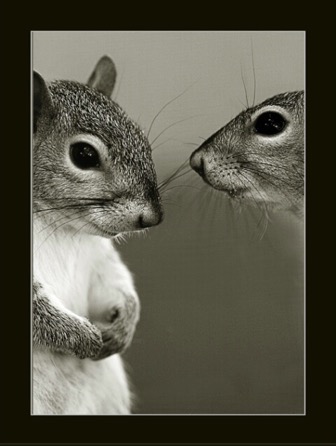
"They mostly only ever show through sometimes."
Some of the past never fully passes. A bit of it turns into legend, some of it into infamy, and the tiniest bit becomes deep, dark secrets over time. Even the secret seems more present than it should. No matter how many decades accrete on top of the original experience, it stays kind of close to the surface. A small scratch might reincarnate it at any time no matter how far out of mind it slips in the intervening years. A scent, a sound, a whisper from a dark alleyway as I pass, and that particular past, a Passsst, spontaneously reincarnates. Whether sweet or savory, bitter or sour, I re-experience the original sensations regardless of what I was just in the middle of doing.
I might then feel transported into another place and time.
Ancienting
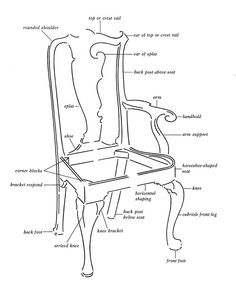
" … old treasure like me would never come up for auction, anyway."
The Antique Road Show appraisers speak of patina, and seem to worship it. The hapless owner's grandmother refinished the piece eighty years ago and stripped off at least ninety percent of the chair's value. In its present refurbished state, it might garner no more than a few hundred bucks. Had grandma been less of a go-getter, a few tens of thousands, maybe a hundred grand on a good day. What was once a treasure will now remain kitsch, authenticity forever compromised.
More than half of what some derisively refer to as The Aging Process involves retaining the deepening patina despite pressures to refurbish.
Progressing
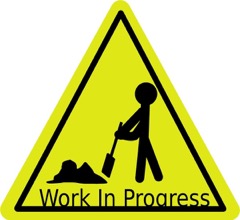
" … progress can be beyond even the the most watchful beholder's eye."
Ten years ago on this date, The Muse and I declared personal and professional bankruptcy. Lehman Brothers beat us to it by two weeks, and we'd lost a whole lot less they they did when we finally admitted to ourselves and to the world that we'd lost everything. We had not speculated in junk derivative bonds. The economy dried up and our business evaporated. Two weeks before we filed, my father died after a long summer of declining health. Those final six weeks or so, I'd manned the overnight watch. Both The Muse and I were ragged by then, frantic, then accepting, then finally simply dazed. We thought we'd probably lose the house, though bankruptcy allowed us to retain ownership in that one asset if we could wrangle some way to retain it; but with no work, no income, no savings, and little hope, other than a hopeful candidate running to replace the disastrous president, we finally admitted that we'd gone bust.
This experience represented real progress, as unlikely as it seemed at the time.
LateralSlide

"Hail Mary, full of grace …"
Back when I was still a wannabe, I agreed to deliver a presentation at a prestigious conference. I'd successfully swallowed my insecurities and submitted the proposal, the organizers accepted it, then I was left with the small matter of preparing the paper and producing the actual presentation. As usual, I'd jumped with little idea where my leap might land me, so I found myself attempting to invent a parachute as I plummeted downward. I quickly realized that I'd jumped before possessing one critical bit of information. I had no clue what this information might entail, but nonetheless felt confident that if only I could somehow gain access to it, me presentation might succeed. Without it, I felt clearly doomed.
I fled to the library, a refuge which might at least open some possibilities. I mean, libraries are filled with information. Right?


